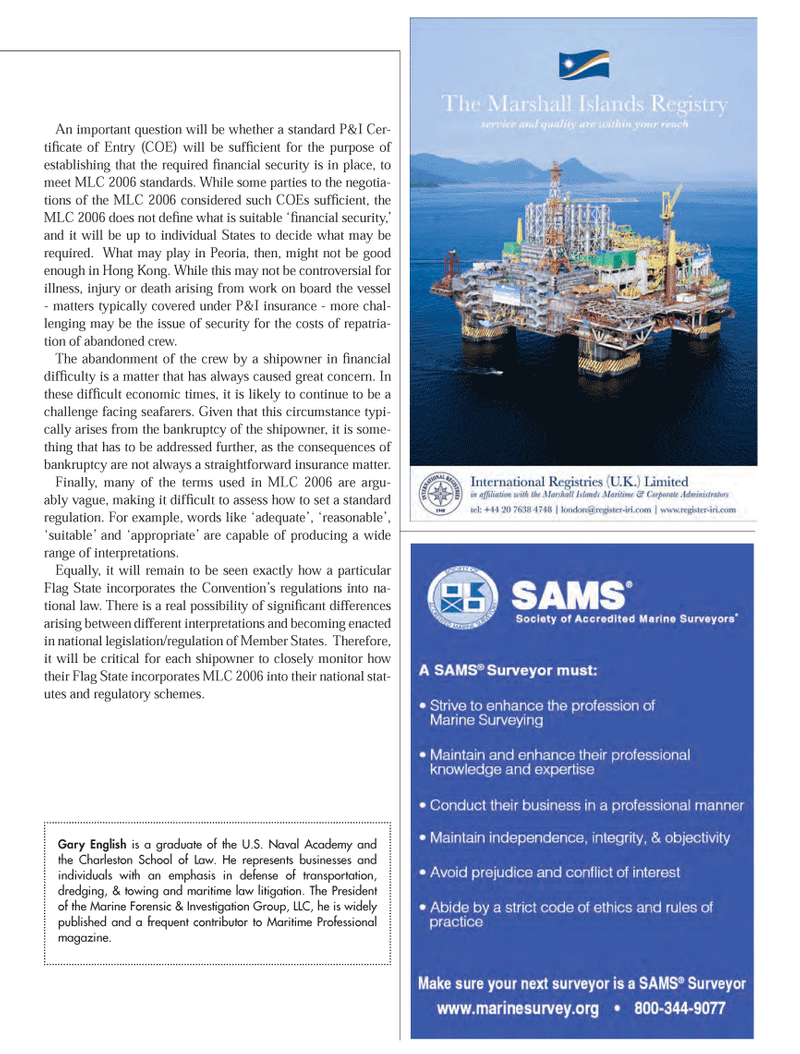
Page 13: of Maritime Logistics Professional Magazine (Q3 2013)
Training & Security
Read this page in Pdf, Flash or Html5 edition of Q3 2013 Maritime Logistics Professional Magazine
An important question will be whether a standard P&I Cer- tiÞ cate of Entry (COE) will be sufÞ cient for the purpose of establishing that the required Þ nancial security is in place, to meet MLC 2006 standards. While some parties to the negotia- tions of the MLC 2006 considered such COEs sufÞ cient, the MLC 2006 does not deÞ ne what is suitable ÔÞ nancial security,Õ and it will be up to individual States to decide what may be required. What may play in Peoria, then, might not be good enough in Hong Kong. While this may not be controversial for illness, injury or death arising from work on board the vessel - matters typically covered under P&I insurance - more chal- lenging may be the issue of security for the costs of repatria-tion of abandoned crew. The abandonment of the crew by a shipowner in Þ nancial difÞ culty is a matter that has always caused great concern. In these difÞ cult economic times, it is likely to continue to be a challenge facing seafarers. Given that this circumstance typi- cally arises from the bankruptcy of the shipowner, it is some- thing that has to be addressed further, as the consequences of bankruptcy are not always a straightforward insurance matter. Finally, many of the terms used in MLC 2006 are argu- ably vague, making it difÞ cult to assess how to set a standard regulation. For example, words like ÔadequateÕ, ÔreasonableÕ, ÔsuitableÕ and ÔappropriateÕ are capable of producing a wide range of interpretations.Equally, it will remain to be seen exactly how a particular Flag State incorporates the ConventionÕs regulations into na- tional law. There is a real possibility of signiÞ cant differences arising between different interpretations and becoming enacted in national legislation/regulation of Member States. Therefore, it will be critical for each shipowner to closely monitor how their Flag State incorporates MLC 2006 into their national stat-utes and regulatory schemes. Gary English is a graduate of the U.S. Naval Academy and the Charleston School of Law. He represents businesses and individuals with an emphasis in defense of transportation, dredging, & towing and maritime law litigation. The President of the Marine Forensic & Investigation Group, LLC, he is widely published and a frequent contributor to Maritime Professional magazine.MP #3 1-17.indd 13MP #3 1-17.indd 139/10/2013 10:37:24 AM9/10/2013 10:37:24 AM

 12
12

 14
14
